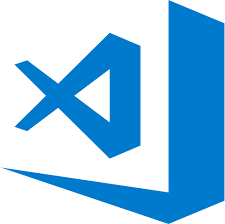
And with Chrome OS effectively being Linux under the bonnet with a shiny UI on top, the choices are actually plentiful when it comes to running Linux Apps, such as VS Code, on a Chromebook.
#Visual studio code chromebook linux app how to
How to install VS Code on a cheap and cheerful Acer Chromebook?!Īt this point, it helps to know that Chromebooks run Chrome OS as their operating system. So, the job at hand was fairly straightforward Regardless of the platform: I need the right tools, to get the job done! But most importantly, they didn’t provide the necessary tools to integrate with my existing workflow. They didn’t integrate with the ecosystem I came to rely upon. They were made for a slightly different purpose. And miserably failed after about an hour in. It’s not that I was reluctant (some would say stubborn) to consider the switch to another editor.
#Visual studio code chromebook linux app android
And not in the Google Play Store either (side note: having Android apps running on Chrome OS is a really differentiating feature and opens the door widely into that giant universe). And it’s got great battery life for something that has the weight of two tea bags and looks like it did shrink in the wash. So, when finally getting my hands on a cheap and cheerful Acer Chromebook with a full-size and comfortable keyboard, it sounded like the perfect blogging machine. When it comes to blogging (you’re looking at it), VS Code has supported me in evolving my workflow into a GitOps centric one where I can effectively and efficiently author “articles-as-code” using post2ghost. VS Code has become the de-facto editor of choice for me - for everything from open source development to writing blog posts in Markdown (yep, also this one). And it’s got a million and one extensions for just about everything I need (or have not yet realised that I need them). It’s “batteries included” which means that it’s got most of the things I need right out of the box. Over the past years, I’ve found myself slowly transitioning VS Code into the centre of my productivity toolbox. When I first encountered Visual Studio Code (in short: VS Code), I was initially quite sceptical about yet another fully-customisable editor built in yet another language that had seen a massive spike in popularity over recent years.īut I was also quickly and gladly proven wrong by its value proposition.

When it comes to productivity, convenience really is king for me! Over the past decades I’ve used numerous IDEs, tending to stick with what Worx for Me!™, until either my requirements could no longer be met or something better came along that evolved my workflow altogether. Happy? Got what you were looking for in the time you were willing to invest? Fantastic! Now, join the rest of us for how we got there in the first place (and admire some beautiful screenshots along the way)…


 0 kommentar(er)
0 kommentar(er)
